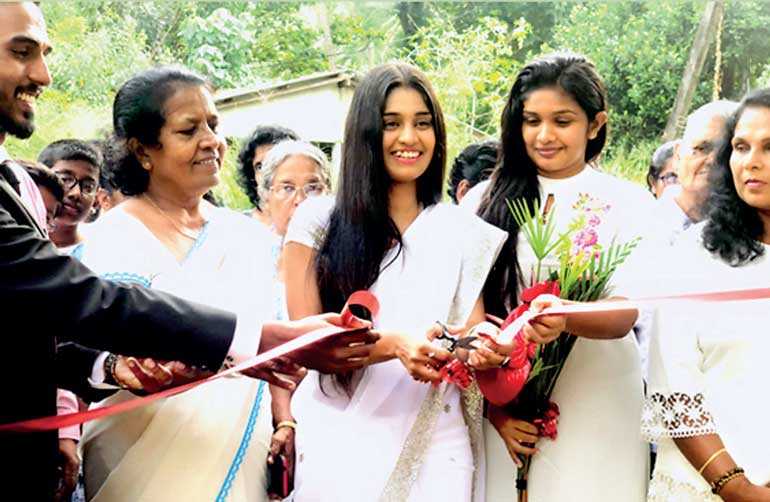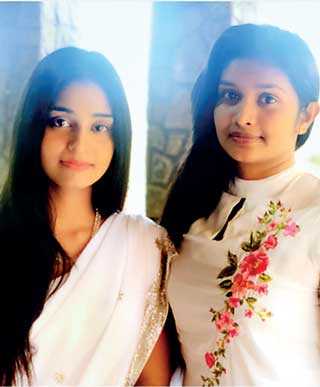Friday Feb 27, 2026
Friday Feb 27, 2026
Monday, 24 February 2020 00:00 - - {{hitsCtrl.values.hits}}

Sri Lankan actress Michelle Dilhara released her first book, ‘Social Invisibility is not a Fiction it Exists’ in 2019, which was published by Amazon. Social Invisibility is not a Fiction it Exists is a research book done with Emeritus Professor Antoinette Perera, co-author Thilina Dhanushka Abewickrama who is a well-known internet entrepreneur, author and Dr. Parakrama Warnasuriya. Michelle Dilhara won the Asia Inspiration Award 2018 and the Youth Peace Ambassador Award 2019. She received the National Youth Icon Award 2019 in India, New Delhi.
 |
| Michelle Dilhara and Manusha D. Navarathna |
According to Michelle, Social Invisibility refers to a group of people in the society who have been separated or systematically ignored by the majority of the public. As a result, those who are marginalised feel neglected or being invisible in the society. It can include elderly homes, child orphanages, homeless people or anyone who experiences a sense of ignorance or separation from society as a whole. Michelle discusses a few practical implementations in the book that should be applied in the current society, to minimise social invisibility and social exclusion.
She released her first theory in 2019, ‘The Theory of Alternative Social Cogwheel’. The objective of the alternative cogwheel theory is to minimise the social exclusion of the people affected due to factors such as their educational status, appearance, disability, old age, being in an orphanage, being homeless, poverty, barriers to full participation in employment as senior citizens, discrimination and violence or anyone who experiences a sense of ignorance or separation from society as a whole. It is meant to provide a theoretical framework for constructing new approaches that help integrate these individuals into social networks.
Michelle initiated the Invisible to Visible Movement with Manusha D. Navarathna and started her first implementation with Danushka Clark by giving 500 free English scholarships to students facing language barrier. As the second implementation of the book they opened an Elderly Community Centre in Divulapitiya called ‘Senehas Arana’ for all the retired elders and for the elders who suffer from loneliness and depression. Manusha D. Navarathna is the acting chairman of the Senehas Arana community centre. The main objective of Senehas Arana Community Centre is to implement the necessary steps to build the broken connections of the people who are suffering from social invisibility and social exclusion. Michelle believes that when you are young and living in an active society, we live with a contestant pressure to maintain our social class and living standards in the society. We need to put our full strength and time to maintain these standards. But what happens when we grow old? We lose our speed, hearing, memory, eyesight and strength. We make mistakes and errors due to these conditions. Gradually the society feels that they need a replacement for the jobs we did in the society. After three or four years, they are no longer able to fulfil their social roles, and are less needed by others. This can lead to isolation or depression. When they start to feel less involved with their networks and their need is not being adequately fulfilled, this leads to frustration or loneliness.
The theory of alternative social cogwheel is a theory design to identify the elders who are excluded due to the above mentioned factors and bring them to one place where they can all meet, which will make them feel that they are not alone anymore. ‘Senehas Arana’ is a place where this theory is being practically implemented and practiced. There are more than 350 elders associated with the initiation processes of the program.